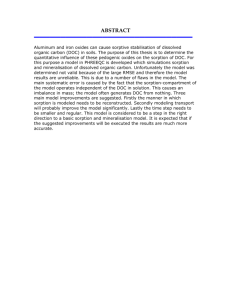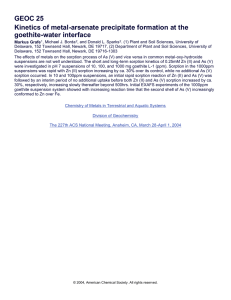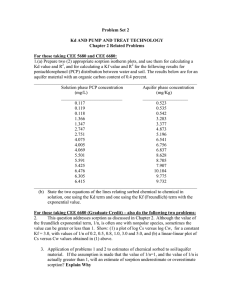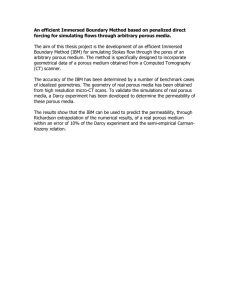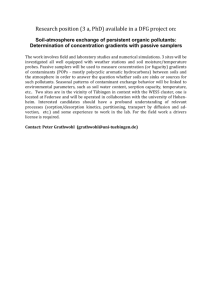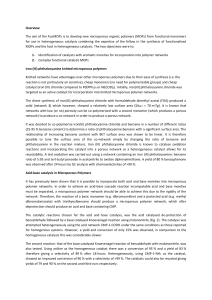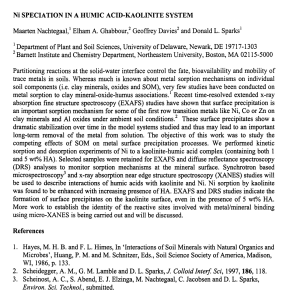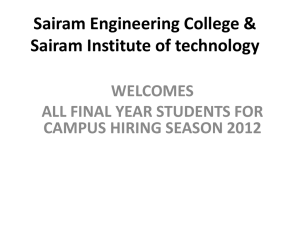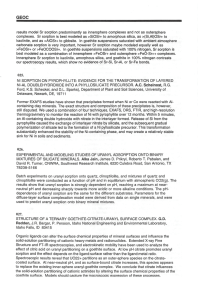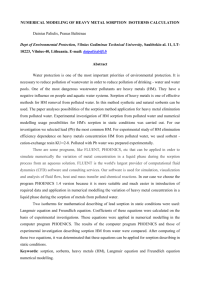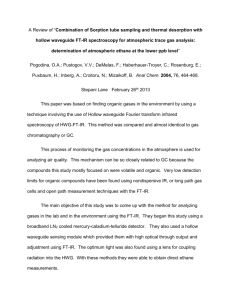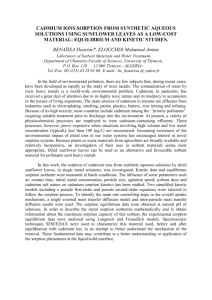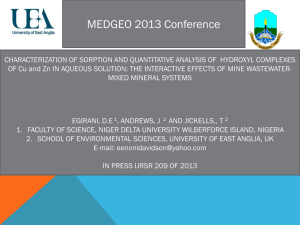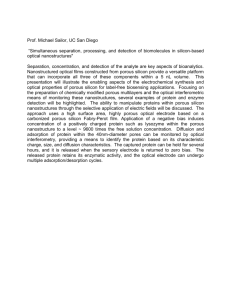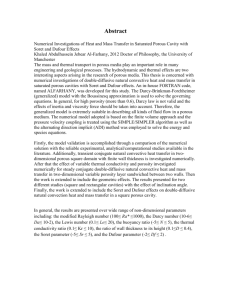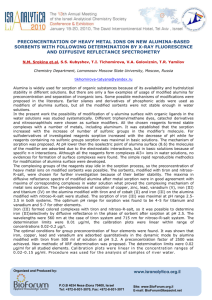Porous materials in solar heat storage applications
advertisement
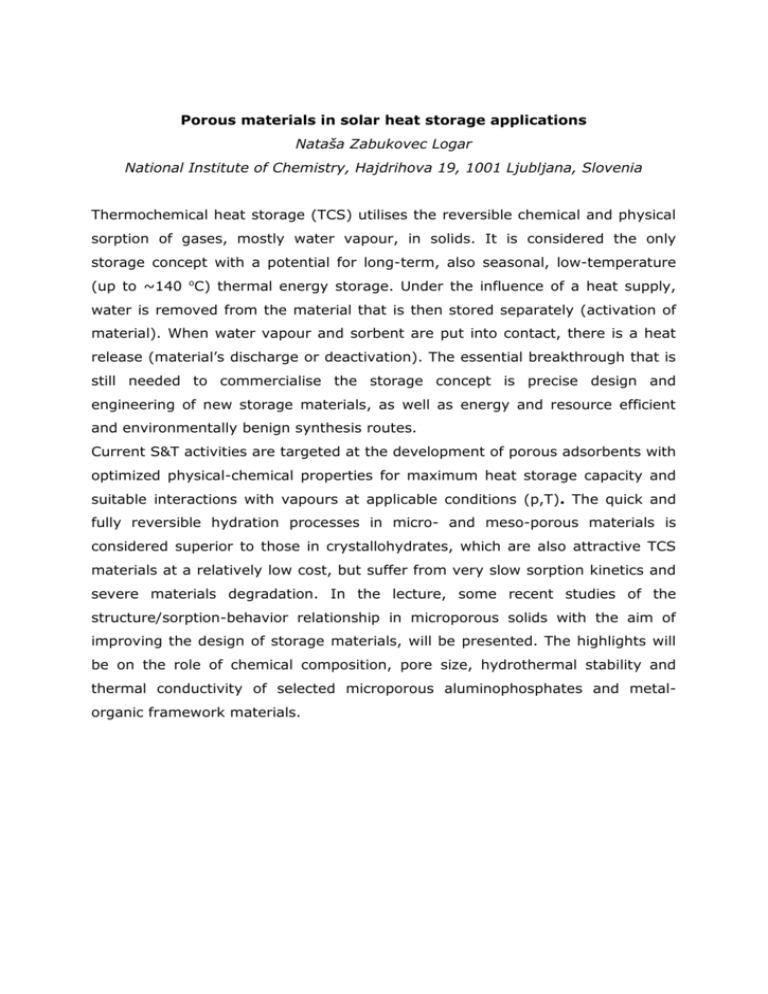
Porous materials in solar heat storage applications Nataša Zabukovec Logar National Institute of Chemistry, Hajdrihova 19, 1001 Ljubljana, Slovenia Thermochemical heat storage (TCS) utilises the reversible chemical and physical sorption of gases, mostly water vapour, in solids. It is considered the only storage concept with a potential for long-term, also seasonal, low-temperature (up to ~140 oC) thermal energy storage. Under the influence of a heat supply, water is removed from the material that is then stored separately (activation of material). When water vapour and sorbent are put into contact, there is a heat release (material’s discharge or deactivation). The essential breakthrough that is still needed to commercialise the storage concept is precise design and engineering of new storage materials, as well as energy and resource efficient and environmentally benign synthesis routes. Current S&T activities are targeted at the development of porous adsorbents with optimized physical-chemical properties for maximum heat storage capacity and suitable interactions with vapours at applicable conditions (p,T). The quick and fully reversible hydration processes in micro- and meso-porous materials is considered superior to those in crystallohydrates, which are also attractive TCS materials at a relatively low cost, but suffer from very slow sorption kinetics and severe materials degradation. In the lecture, some recent studies of the structure/sorption-behavior relationship in microporous solids with the aim of improving the design of storage materials, will be presented. The highlights will be on the role of chemical composition, pore size, hydrothermal stability and thermal conductivity of selected microporous aluminophosphates and metalorganic framework materials.

